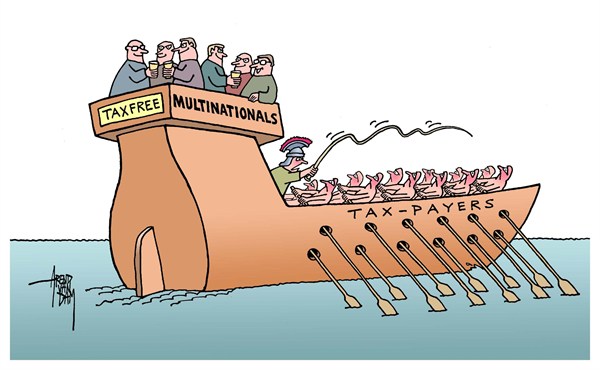…New research finds major economies play significant role in global tax avoidance. Kenya preparing to become East Africa’s tax haven.
By TZ Business News Staff.
Tax avoidance has traditionally been associated with only tiny, difficult -to-reach islands found somewhere on the high seas. This view is no longer true.
Researchers have determined a considerable number of large ‘on-shore’ economies are just as guilty of facilitating tax avoidance as the tiny off-shore tax havens.
The UK-based Tax Justice Network (TJN)–which advocates for honesty and fairness in the way global business pays taxes–have published a report asserting that a number of large on-shore economies previously thought to be clean, innocent countries are actually tax havens.
Quoting a research report from the University of Amsterdam, TJN identifies two categories of tax avoidance facilitators: ‘Conduit’ facilitators and ‘sink’ facilitators. Researchers mined data which highlights the central role of ‘conduit’ and ‘sink’ havens. “Enter stage right the United Kingdom and the Netherlands,” the report says.
A Sink-OFC is described as a tax jurisdiction in which a disproportional amount of value disappears from the economic system, while a Conduit-OFC is a tax jurisdiction through which a disproportional amount of value moves toward sink-OFCs.
The University of Amsterdam researchers found that “a handful of big countries – the Netherlands, the UK, Switzerland, Singapore and Ireland – serve as the world’s conduit OFCs.” They draw attention to the fact that “Of 24 sink OFCs, 18 have a current or past dependence to the UK…”
[Kenya, a member of the East African Community is meanwhile in the process of creating a law which will in effect turn this member of this community into a tax haven. Read our earlier report on Kenya here. Other sources allege States of Wyoming, Delaware and Nevada contain financial secrecy laws which in effect include the United States of America on the list of tax havens].
The researchers also pointed out the following: “Our findings debunk the myth of tax shelters as exotic far-flung islands that are difficult, if not impossible, to regulate. Many offshore financial centres are highly developed countries with strong regulatory environments.”
[TJN agrees]. This is matter of political will. And abuse of power. Read further about this fascinating research, here and here.
The important new study on Offshore Financial Centres (OFCs) from the University of Amsterdam has made some fascinating discoveries; challenging, as the Financial Secrecy Index has, the popular misconception that tax havens are only palm fringed little islands and exposing that in fact major economies play a key role in global tax avoidance.
In the research report titled ‘Uncovering Offshore Financial Centers: Conduits and Sinks in the Global Corporate Ownership Network’, economists and computer scientists in the CORPNET research group have used the following method to derive results:
“a data-driven method based on network analysis to identify OFCs. Our data covers over 77 million ownership relations, which together form a large network in which value flows from subsidiaries to shareholders.
“From it we extract millions of global corporate ownership chains (see Figure 2). The resulting fine-grained insight allows us to not only see where value originates and ends up, but also exactly where it originated. This allows us to identify two types of OFCs: Sink-OFC, [which are] jurisdiction in which a disproportional amount of value disappears from the economic system, [and] Conduit-OFC, [which are] jurisdiction through which a disproportional amount of value moves toward sink-OFCs.” These are describe here.
“We looked not at country-level statistics but at detailed company data. By asking which countries and jurisdictions play a role in corporate ownership chains that is incommensurate with the size of their domestic economies, we were able to identify, for the first time, a complex global web of offshore financial centres.
“We analysed the entire massive global network of ownership relations, with information of over 98 million firms and 71 million ownership relations. This granular firm-level network data helped us to distinguish two kinds of tax havens: sinks and conduits.”
They have identified 24 ‘sink’ Offshore Financial Centres, including Taiwan.
We wrote about the dangers of Taiwan’s rise as an un-noticed tax haven, ‘the new Switzerland for Asia’ here. And here, where we explain that given the lack of external assessments of Taiwan’s legal framework, Taiwan couldn’t be ranked in our most recent Financial Secrecy Index, although its range of potential “secrecy score” (how secretive its legal framework is) is among the worst secrecy jurisdictions (or “tax havens”).
Taiwan hasn’t even committed to implementing the OECD’s CRS for automatic exchange of banking information, let alone signed the multilateral competent authority agreement to implement it. Taiwan is exploiting this voluntary self-exclusion to promote itself as a tax haven.





